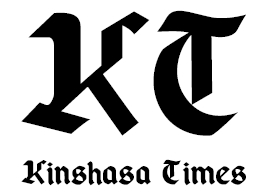Twenty-four hours after awarding the deserving authors, the initiator of « Mikanda Awards » returned to this first edition of the event which will now reward the best Congolese authors, this year. In an interview with KINSHSASATIMES.CD, Déo Vuadi gives his impressions on the progress of the prize-giving ceremony to the winners held at the Wallonie Bruxelles Center in Kinshasa and reveals some prospects for the future.
KINSHASA TIMES: The first edition of Mikanda Awards took place on February 14, 2017, what impressions do you still have of this first adventure?
DEO VUADI: I keep a satisfactory impression and I bet my team also has the same feedback.
KT: Can we say it was a success? Was the event up to your expectations?
DV: Yes, all the more so because our objective was that the media could make the project popular. That was really the goal for this first edition. It can now be said that the project was a great success.
KT: Most of the award-winning authors are very little known or even unknown to the general public, why did you choose to only prize those?
DV: We did not choose the authors. There was a call for candidates; there were authors and editors who responded favorably. It’s on this basis that we made a pre-selection and afterwards, the jury members read and gave us the results. The main objective of this project is also to make known some unknown or known writers. To give them visibility, a sort of popularity in the media so that they can better sell their works.
KT: Mikanda Awards I was held on February 14, the day of the lovers’ feast. Was that a message?
DV: [Laughs] No, the date was not decided by us intentionally. It was a partner, the Wallonia Brussels Center, which suggested us that date to organize the award event, and we were only communicating on it and we succeeded in our communication and the event happened.
KT: When is the second edition and what are your prospects for the future?
DV: For the second edition I think that from September and October we will launch the call for applications. In our perspectives we want the event to be much more national than this first, because we had people from Gemena, Kananga from Kikwit, Goma … we want many more cities so that the project can represent the whole territory of DRC, and also that there may be much more communication, and of course for such a project we need more partners and even a lot of sponsors to do better.
The full interview in French can be accessed below


